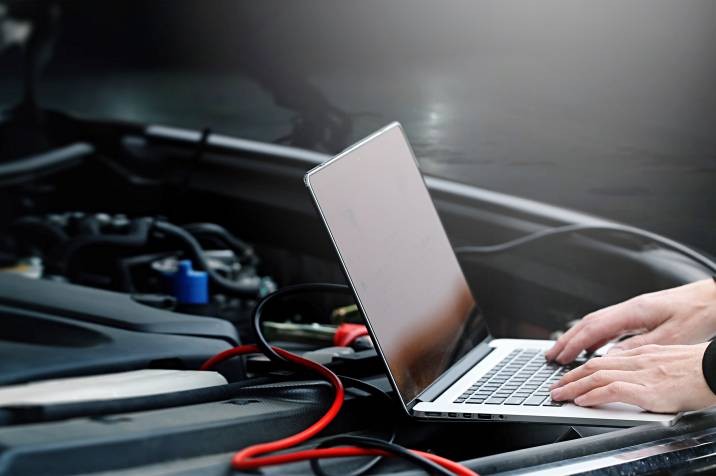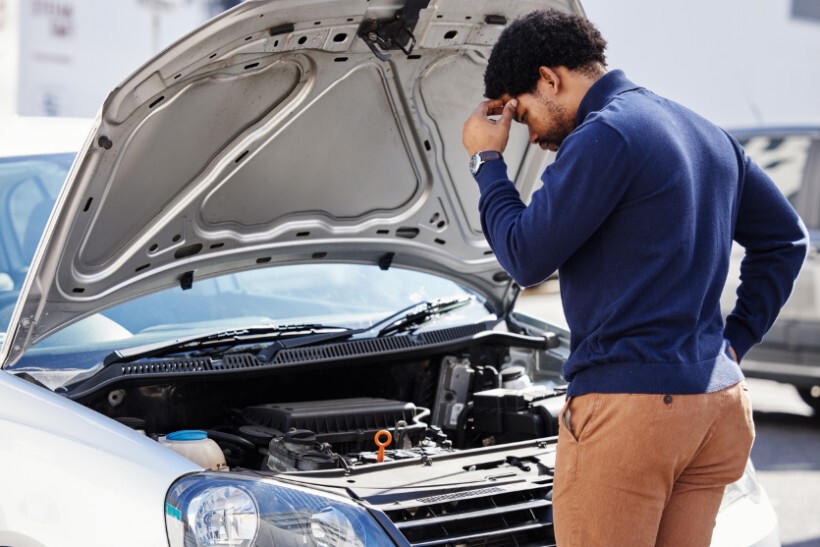It’s happened to many car owners: the dreaded check engine light illuminates on your dashboard. Or perhaps your vehicle is just not running as smoothly as it used to. In these situations, a car diagnostic test can be your first step towards identifying and fixing the problem. But before you book an appointment, a crucial question arises: how much does it cost to put a car diagnostic?
The cost of a car diagnostic test can vary significantly, typically ranging from $20 to over $400. This broad range depends on several factors, including the service provider, the type of vehicle you own, and where you are located. Understanding these variables will help you anticipate the potential expense and make informed decisions about your car’s maintenance.
Understanding Car Diagnostic Tests
Modern cars are complex machines equipped with numerous sensors and onboard computers. When something goes wrong, these systems often trigger warning lights, like the check engine light. A car diagnostic test is a computerized analysis of your vehicle’s systems. Mechanics use specialized tools and software to communicate with your car’s computer, reading error codes and data from various sensors to pinpoint potential issues. This process is far more efficient than manual inspections alone, quickly directing mechanics to the area needing attention and repair.
What a Comprehensive Car Diagnostic Test Covers
A mechanic utilizes a laptop-based car diagnostic tool to assess vehicle health under the hood.
A full car diagnostic test typically examines a wide array of your vehicle’s critical systems. Here’s what you can generally expect a comprehensive diagnostic service to evaluate:
- Engine Performance: Checks for issues within the engine itself, including misfires, fuel delivery problems, and sensor malfunctions.
- Electrical System: Evaluates the battery, alternator, starter, and wiring for faults that can impact overall vehicle operation.
- Emissions System: Analyzes components like the catalytic converter and oxygen sensors to ensure your car is running cleanly and efficiently, and meeting emission standards.
- Transmission: Assesses the health of your automatic or manual transmission, looking for issues that could lead to shifting problems.
- Braking System (ABS): Diagnoses the anti-lock braking system for sensor failures or hydraulic issues, crucial for safety.
- Exhaust System: Checks for leaks or blockages in the exhaust system that can affect performance and emissions.
- Fuel System: Examines the fuel pump, injectors, and fuel lines for proper fuel delivery to the engine.
- Ignition System: Evaluates spark plugs, ignition coils, and related components responsible for starting and running the engine.
- Air Conditioning (A/C): Checks the functionality of the air conditioning system, including refrigerant levels and compressor operation.
- Airbags and Safety Systems (SRS): Diagnoses the Supplemental Restraint System, ensuring airbags and seatbelt pretensioners are functioning correctly in case of an accident.
It’s important to understand that a diagnostic test is not a repair itself. It identifies potential problems, guiding mechanics toward the source of the issue. Further investigation and manual inspection are often needed to confirm the diagnosis and proceed with repairs.
Car Diagnostic Test Costs: Breaking Down the Price Range
To give you a clearer picture of potential costs, here’s a breakdown of typical price ranges for car diagnostic tests:
| Diagnostic Test Category | Cost Estimate | Description |
|---|---|---|
| Basic Diagnostic Scan (Low-End) | $20 – $65 | Often offered as a loss leader to attract customers. May only cover a quick scan for basic error codes, potentially at chain auto parts stores or as part of a broader service. |
| Standard Diagnostic Service (Mid-Range) | $65 – $160 | The typical range you can expect at most independent repair shops and some dealerships. Includes a more thorough scan and initial interpretation of results, potentially with some preliminary troubleshooting. |
| Comprehensive Diagnostic Test (High-End) | $160 – $400+ | Usually found at dealerships, specialized repair shops, or for luxury/high-performance vehicles. May involve advanced diagnostic equipment, in-depth analysis, and expert technician time. Can also include diagnostics for complex or intermittent issues. |


Disclaimer: These cost estimates are based on industry research and average rates. Actual prices may vary based on your location, the specific service provider, and the complexity of the diagnostic process. Always confirm pricing directly with the mechanic or service center.
Factors Influencing Car Diagnostic Costs
Several factors can affect how much you’ll pay for a car diagnostic test:
Location, Location, Location
Geographic location plays a significant role in pricing. Areas with higher costs of living and greater demand for auto repair services tend to have higher diagnostic fees. Conversely, more competitive markets might see slightly lower prices as businesses strive to attract customers. Urban areas generally have more competition, potentially leading to more competitive pricing, while rural areas with fewer options might see higher costs.
Mechanic’s Expertise and Labor Rates
The experience and skill level of the mechanic performing the diagnostic test also influence the price. Highly experienced and certified technicians often command higher labor rates. Shops with advanced diagnostic equipment and specialized expertise, particularly those dealing with luxury or performance vehicles, will likely charge more for their services. Labor rates are a significant component of diagnostic costs, and these rates vary widely from shop to shop.
Vehicle Make and Model Complexity
The make and model of your vehicle is a crucial factor. Diagnosing issues in common, mass-market vehicles is generally less expensive because mechanics are more familiar with them, and parts and diagnostic procedures are readily available. However, luxury vehicles, high-performance cars, and vehicles with advanced technology often require specialized diagnostic equipment and expertise. These vehicles may have complex computer systems and require technicians with specific training, leading to higher diagnostic costs.
Type of Diagnostic Service Needed
The complexity of the problem and the depth of the diagnostic service required will directly impact the cost. A simple check engine light scan might fall on the lower end of the price range. However, diagnosing intermittent problems, complex electrical issues, or performance problems that are not immediately obvious can require more time, advanced equipment, and therefore, a higher cost.
When Should You Get a Car Diagnostic Test?
A car owner inspects his engine after noticing performance problems.
Knowing when to get a diagnostic test can save you from potential bigger issues and expenses down the road:
- Check Engine Light is On: This is the most obvious sign. The check engine light indicates that your car’s computer has detected a problem. A diagnostic test is essential to read the error codes and identify the issue.
- Pre-Purchase Used Car Inspection: Before buying a used car, a diagnostic test is a wise investment. It can reveal hidden problems not apparent during a visual inspection, potentially saving you from costly repairs after purchase.
- Preventive Maintenance Schedule: Some manufacturers recommend periodic diagnostic checks as part of routine maintenance to catch minor issues before they escalate.
- Unusual Vehicle Behavior: If you notice any changes in your car’s performance, such as rough idling, unusual noises, decreased fuel efficiency, or strange smells, a diagnostic test can help identify the cause, even if the check engine light is not illuminated.
Finding Affordable and Reliable Car Diagnostic Services
Getting a car diagnostic test doesn’t have to break the bank. Here are a few tips for finding cost-effective services:
- Compare Quotes: Call multiple local repair shops and dealerships to get quotes for a diagnostic test. Explain your vehicle’s symptoms and ask about their diagnostic process and fees.
- Consider Independent Shops: Independent auto repair shops often have lower labor rates compared to dealerships. Many reputable independent shops have advanced diagnostic equipment and skilled technicians.
- Check for Diagnostic Specials: Some auto parts stores or repair chains offer free or discounted basic diagnostic scans as a promotional service. Be aware of the scope of these free services and whether they meet your needs.
- Ask About Diagnostic Fees and Repair Credit: Clarify whether the diagnostic fee is a standalone charge or if it can be credited towards repair costs if you choose to have the shop perform the repairs.
By understanding the factors influencing car diagnostic costs and doing a little research, you can confidently address your car’s needs without overspending. A proactive approach to diagnostics can lead to timely repairs, potentially saving you money and keeping your vehicle running smoothly for years to come.
